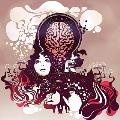
DMT-Nexus member
 
Posts: 3335 Joined: 04-Mar-2010 Last visit: 08-Mar-2024
|
The Number TwoLet’s say the result of a sequence “s” of mathematical operations is “2”. There are many such sequences: s1 = 1 + 1 = 2 s2 = 2 + 0 =2 s3 = 3 – 1 = 2 s4 = 2 * 1 = 2 s5 = 6 / 3 = 2 s6 = 1 + 3 – 2 = 2 In fact, there are infinitely many such sequences. The result of the sequence of operations tells us nothing about the sequence itself. As long as a sequence is consistent with the result, it is equivalent to any other similarly consistent sequence. Given the result of such a mathematical sequence, how would you go about determining the sequence from which it was derived? The Photo of a RoseI present you with 4 digital prints of a red rose in a glass bud vase. The prints are derived from: 1. A photograph made by a digital camera of an actual rose in a vase. 2. A computer simulation of a rose in a vase. 3. A very realistic painting of a rose in a vase. 4. A photograph of a silk rose in a plastic bud vase. Furthermore, the 4 prints are identical in appearance, pixel by pixel, and each is consistent with a photo of a genuine rose in a glass vase, yet their sources – their methods of production – are very different. And although I presented you with only 4 prints, there are infinitely many ways to produce the same identical print. How would you go about determining which is which? The Computer and JoystickI sit you down in front of a computer monitor and joystick. The monitor shows an image of a robotic arm and a metallic cube in an otherwise empty room. I inform you that the images you see correspond to one of the following: 1. A live video feed of an actual robotic arm and an actual metallic cube in an actual adjacent room. 2. A highly accurate computer simulation of a robotic arm and cube. 3. A live video feed of an actual robotic arm in an actual room overlaid by a computer simulation of a metallic cube. 4. A live video feed of an adjacent empty room overlaid by a computer simulation of a robotic arm and cube. 5. A live video feed of an adjacent empty room overlaid by a live video feed from another room of an actual robotic arm and cube. 6. Sequences of pre-generated , highly detailed images drawn by a skilled artist and displayed in an appropriate sequence by a computer algorithm. Although I present you with six possible sources, there are in fact infinitely many possible sources of images consistent with what you experience. I give you some time to use the joystick to move the arm and manipulate the cube, and then I ask you which source is the actual source of the images. How would you respond? The Boy in the SubmarineA boy is born onboard and lives his entire childhood on a submarine. The submarine has no windows, but instead has video monitors connected to cameras outside. Throughout the boy’s life he sees many sights and learns many things about the aquatic environment in which he exists. Although he has never seen dry land or the surface, he has learned about these places. After the boy reaches a certain age, he is told that what he sees and his actual environment is one of the following: 1. An actual oceanic environment with video cameras capturing life as it appears to be. 2. A computer simulation. The submarine is actually parked in a research lab and has never been in the ocean. 3. Pre-recorded scenes of an actual oceanic environment synchronized to appear interactive. The sub is parked on dry land. 4. Live video of a distant oceanic environment relayed to the sub which is parked on dry land. Each hypothesis is consistent with the life experiences of the boy. Although presented with only 4 hypotheses, there are actually infinitely many. How can the boy determine which represents his actual situation? The EpilogWhat we each call reality is actually a hypothesis we each develop to make sense of our experiences. The degree of consistency of one’s hypothesis with one’s experiences is not a measure of the closeness to “reality” of the hypothesis. With respect to the nature of existence at least, it is a mistake to think that a hypothesis that is highly consistent with experiences somehow reveals something about the underlying nature of things. All of the examples I gave illustrate a variety of hypotheses, each equally consistent with the experiences and information presented. Equally consistent, yet in each example only one corresponds to the way things actually are. I often use the hypothesis “life is a dream” to illustrate this, and some people misunderstand, assuming I believe that life is indeed a dream. The reason I make such statements is to point out that the hypothesis “life is a dream” is consistent with experience (depending on how we define “dream”). The hypothesis “consciousness precedes matter” is just as consistent with experience (maybe even more so) as the hypothesis “matter exists independently of consciousness”. Considering that there are infinitely many hypotheses about the nature of reality, all equally consistent with experience*, it is highly improbable that any hypothesis one adopts accurately reflects the true nature of things. *There are also infinitely many hypotheses that are inconsistent with experience! gibran2 is a fictional character. Any resemblance to anyone living or dead is purely coincidental.
|
|
|
|
|

DMT-Nexus member

Posts: 14191 Joined: 19-Feb-2008 Last visit: 22-Nov-2025 Location: Jungle
|
Very well said  So I was thinking that in all those hypothesis you mentioned, one way to tell about the nature of the phenomenon would be if it would `leave fingerprints` and upon closer examination, we could at least rule out some of the possibilities. Of course reducing `some` from an infinite number still turns infinite, and understanding the totality of existence is probably too much to ask.... I do think your point is a good one, that ultimately there`s always a mistery about the nature of existence, and that we need to be aware of the assumptions we make which shape our worldview, though once that is taken care of, I think we can and should ponder about the nature of reality. I think being entertained by the different hypothesis and working out if they have any consequences or predictable fingerprints might lead us into discovering many fascinating secrets about the universe. And maybe this, together with conscious evolution, can lead us to blend back with The Source 
|
|
|

DMT-Nexus member

Posts: 3135 Joined: 27-Mar-2012 Last visit: 10-Apr-2023
|
This explanation makes hypothesizing our existence seem dumb. Im actually really glad i read this. It def added a new level of understanding to my brain. It also makes me feel dumb, and very small. This also seems like a very basic understanding of hyperspace. Like, is that machine elf the same thing as the machine elf that someone else saw? Or is it something completely different that just appears as the same thing. "Energy flows where attention goes" [Please review the forum Wiki and FAQ before posting questions]
|
|
|

DMT-Nexus member

Posts: 2854 Joined: 16-Mar-2010 Last visit: 01-Dec-2023 Location: montreal
|
Excellent examples all Gibran2. The problem is, however, in your examples, one of the infinite answers must actually be correct. We may not know which one, but the idea that that one out of an infinite array is correct supports the notion of an objective reality. It only muses that in all likelihood we will not guess which one. (I am now playing devil's advocate in the two threads that sprung out of the discussion between you and AlbertKLoyd, the author of the second thread. Thank you both for making me thunk and putting a little funny in my world)  JBArk JBArk is a Mandelthought; a non-fiction character in a drama of his own design he calls "LIFE" who partakes in consciousness expanding activities and substances; he should in no way be confused with SWIM, who is an eminently data-mineable and prolific character who has somehow convinced himself the target he wears on his forehead is actually a shield.
|
|
|

DMT-Nexus member
 
Posts: 3335 Joined: 04-Mar-2010 Last visit: 08-Mar-2024
|
jbark wrote:Excellent examples all Gibran2. The problem is, however, in your examples, one of the infinite answers must actually be correct. We may not know which one, but the idea that that one out of an infinite array is correct supports the notion of an objective reality. It only muses that in all likelihood we will not guess which one. (I am now playing devil's advocate in the two threads that sprung out of the discussion between you and AlbertKLoyd, the author of the second thread. Thank you both for making me thunk and putting a little funny in my world)  JBArk It’s true that in the examples there is a “correct” hypothesis. This was done only for clarity and simplicity. The real message is this – if a hypothesis is consistent with experience, then it is as valid as any other hypothesis that is equally consistent. gibran2 is a fictional character. Any resemblance to anyone living or dead is purely coincidental.
|
|
|

DMT-Nexus member
Posts: 1453 Joined: 05-Apr-2009 Last visit: 02-Feb-2014 Location: hypospace
|
It is a pleasant exercise in logic, but is hypothetical and abstract and not based upon observable phenomena, but is just conjecture and speculation about the nature of existence, excellent philosophical work but what utility does it have in regards towards pragmatic application?
It seems ultimately vacuous in importance.
How does knowing or not knowing this alter a persons day to day life?
Also in each example there is presupposed a form of existence, this begets objectivity, in each case something must exist for the case to be made. This negates the subjective content of the perception, because the hypothesis ask us, the observer, to presuppose that there is in each case a scenario to consider, regardless of the ability of varied explanations to be made for the existence, the presupposition of such existences negates the concept of subjectivity, you cannot ask the observer to consider these cases subjectively, for then the examples become rendered meaningless, you literally expect an objective consideration of the logical presentations for is such consideration is not made, then there is no case that can be made for subjectivity. Hence the same self negating aspect of the subjective claim comes into play here, for to consider these, we must utilize objectivity to do so, otherwise there is infinite conveyance, if these words each mean an infinite number of things then there is no logic, no conveyance, so the point of consistency becomes moot in terms of subjectivity. For there to be a sequence, an image, a boy, there must be objective content to begin with from which to base the concept of infinite explanations upon.
In the end it becomes an exercise for the mind, but of no real significance, it is merely abstract.
|
|
|

DMT-Nexus member

Posts: 2854 Joined: 16-Mar-2010 Last visit: 01-Dec-2023 Location: montreal
|
AlbertKLloyd wrote:
It seems ultimately vacuous in importance.
How does knowing or not knowing this alter a persons day to day life?
It alters one's life in the same way a good book, or film, or piece of music does - by adding layers, by enriching it. If life's worth was all utility, what a useless and worthless thing it would be. JBArk JBArk is a Mandelthought; a non-fiction character in a drama of his own design he calls "LIFE" who partakes in consciousness expanding activities and substances; he should in no way be confused with SWIM, who is an eminently data-mineable and prolific character who has somehow convinced himself the target he wears on his forehead is actually a shield.
|
|
|

DMT-Nexus member
Posts: 1453 Joined: 05-Apr-2009 Last visit: 02-Feb-2014 Location: hypospace
|
So it amounts to the same as a work of fiction, and I agree, but this has the utility of entertaining a person. Also if you consider a dream, a dream is essentially differentiated, a state apart from reality, so then to say life is a dream renders the word dream totally meaningless, for dream can only exist in contrast to non-dream. Quote:
If life's worth was all utility, what a useless and worthless thing it would be.
You are entitled to that opinion, but I find it untenable. Consider that the concept of worth implies utility. Something cannot have value and lack utility, even if the utility is not pragmatic, even a dirty limerick has utility! However some things lack utility in an ultimate sense. They do not enrich lives in a definite sense, food you see sustains all life, water as well, but not all of us like the same forms of entertainment, so the value of entertainment is so subjective that exercises in abstract logic become useless for some for they have no value, no application, even entertainment value, for some. For me the argument is self defeating and vacuous of meaningful content, if I were a philosophy teacher I would grade it highly, but as a person more concerned with pragmatic value it has no importance to me and having entertainment value for some does not validate it as a claim about reality without some measurable way to provide evidence or falsify a null hypothesis. In other words, it is pointless, to me, but not to all.
|
|
|

DMT-Nexus member
 
Posts: 3335 Joined: 04-Mar-2010 Last visit: 08-Mar-2024
|
AlbertKLloyd wrote:It is a pleasant exercise in logic, but is hypothetical and abstract and not based upon observable phenomena, but is just conjecture and speculation about the nature of existence, excellent philosophical work but what utility does it have in regards towards pragmatic application?
It seems ultimately vacuous in importance.
How does knowing or not knowing this alter a persons day to day life?
Also in each example there is presupposed a form of existence, this begets objectivity, in each case something must exist for the case to be made. This negates the subjective content of the perception, because the hypothesis ask us, the observer, to presuppose that there is in each case a scenario to consider, regardless of the ability of varied explanations to be made for the existence, the presupposition of such existences negates the concept of subjectivity, you cannot ask the observer to consider these cases subjectively, for then the examples become rendered meaningless, you literally expect an objective consideration of the logical presentations for is such consideration is not made, then there is no case that can be made for subjectivity. Hence the same self negating aspect of the subjective claim comes into play here, for to consider these, we must utilize objectivity to do so, otherwise there is infinite conveyance, if these words each mean an infinite number of things then there is no logic, no conveyance, so the point of consistency becomes moot in terms of subjectivity. For there to be a sequence, an image, a boy, there must be objective content to begin with from which to base the concept of infinite explanations upon.
In the end it becomes an exercise for the mind, but of no real significance, it is merely abstract.
I don’t follow your reasoning at all – why the introduction of subjective vs. objective? I’m not making any claims about subjectivity or objectivity. My only claim is really quite simple: If a hypothesis is consistent with experience, then it is as valid as any other hypothesis that is equally consistent. The fact that you thoughtfully respond to these ideas is an indication that they have some importance to you. So rather than ask “How does knowing or not knowing this alter a person’s day to day life?” it might be more fruitful to ask yourself “How does knowing or not knowing this alter MY day to day life?” Finally, the examples I gave were for the most part not at all abstract. I can in fact present you with two photos containing identical images, each produced in a different manner. There is no way for you to determine via examination of the photos which one was produced using which method. This is not an abstract exercise, but rather the nature of many physical systems. gibran2 is a fictional character. Any resemblance to anyone living or dead is purely coincidental.
|
|
|

DMT-Nexus member
Posts: 1453 Joined: 05-Apr-2009 Last visit: 02-Feb-2014 Location: hypospace
|
I disagree. I believe it is an argument about subjectivity and objectivity. Moreover I believe they are totally abstract, for we are not talking about a picture, we are talking about life itself. Quote:If a hypothesis is consistent with experience, then it is as valid as any other hypothesis that is equally consistent. Not if you introduce parsimony and only allow evidenced hypothesis instead of those which are founded upon conjecture. Knowing the logic of the argument presented here (I was exposed to it in college) has done nothing at all to affect or enrich my day to day life. For me it is meaningless because it is abstract and untenable. I suppose as brilliant hyperbole I can appreciate it, but beyond this it has no content for me.
|
|
|

DMT-Nexus member

Posts: 2854 Joined: 16-Mar-2010 Last visit: 01-Dec-2023 Location: montreal
|
AlbertKLloyd wrote:So it amounts to the same as a work of fiction, and I agree, but this has the utility of entertaining a person.
You assume that fiction's sole purpose is to entertain. If you define it as such, it is for you, but meaningful fiction, for me, is rarely (but can be) entertaining. Some fiction's utility may be to entertain, but even then, if it is not meaningful in any other way, it is by definition vacuous. Just as thinking may be useful to solve problems, but may also serve to edify, challenge and enrich. You may say that is its "utility", but that would be a little disingenuous, no? By that argument, all things and all lines of thought have utility - including gibran2's examples, which you state have no utility. "Consider that the concept of worth implies utility. Something cannot have value and lack utility, even if the utility is not pragmatic, even a dirty limerick has utility!" I disagree. I value and assign more worth to a feast I make myself and share with friends than one eaten alone in a restaurant and prepared by someone else. No utility there. I simply value the experience because it is meaningful to me. Worth and value are entirely subjective. Even if there is a consensus of worth in a given environment, it may not hold its "worth" when put in the context of a different culture. No objective worth, no objective utility. Even the worth of gold and silver and money is subjective. We have, arbitrarily, assigned a value to these things and created markets to sustain our subjective consensus regarding their worth. Their utility is an abstraction. And were it not so, no one would fear the devaluing of any of these commodities. And if its worth is subjective, I call into question the objectivity of its utility. Cheers, JBArk JBArk is a Mandelthought; a non-fiction character in a drama of his own design he calls "LIFE" who partakes in consciousness expanding activities and substances; he should in no way be confused with SWIM, who is an eminently data-mineable and prolific character who has somehow convinced himself the target he wears on his forehead is actually a shield.
|
|
|

Homo discens
Posts: 1827 Joined: 02-Aug-2012 Last visit: 07-Aug-2020
|
I have thoroughly enjoyed both of these threads, Gibran. I appreciate you taking the time to write all of this up, despite the fact that I will never know for certain whether or not you actually exist! 
|
|
|
DMT-Nexus member
Posts: 1055 Joined: 21-Nov-2011 Last visit: 15-Oct-2021
|
Great topic Gibran. I would suggest that one can use experiment to narrow down the possibilities, but how do you narrow down infinity? If you could somehow prove half of those possibilities to be false, the number of possibilities would be the same since there are as many even numbers as there are natural numbers. Even by providing evidence that some of the possibilities are false, we only introduce new possibilities. In particular, possibilities of how the provided evidence could somehow be cleverly misleading. My only other thought on this at the moment is that, even with no way to prove any particular hypothesis, we may still be able to use statistics to analyze the infinite possibilities. For example, is it useful to take some sort of path integral over all possibilities? Is there a way to take an average over all of the possibilities? More useful yet: What is the expectation value of reality? Even with the existence of infinite possibilities, there may be answers to such questions. Can we still go the way of Descartes and narrow down the information to at least one truth? At the very least, is it reasonable to assert that "Something is true." ? Every day I am thankful that I was introduced to psychedelic drugs.
|
|
|

DMT-Nexus member

Posts: 3574 Joined: 18-Apr-2012 Last visit: 05-Feb-2024
|
Gibran2 wrote:I present you with.....How would you go about determining which is which? If all things considered are equal...the only logical way to determine which is which, is to mercilessly torture the 'presenter' with a feather duster until he relented and spilled the beans. Please do not PM tek related questions Reserve the right to change your mind at any given moment.
|
|
|

DMT-Nexus member
Posts: 3207 Joined: 19-Jul-2011 Last visit: 02-Jan-2023
|
formal logic and philosophy have no pragmatic value regarding how i interpret reality  no but seriously, great thread gibran. more people need to remember they really don't know sh*t My wind instrument is the bong
CHANGA IN THE BONGA!
樹
|
|
|
member for the trees
  
Posts: 4003 Joined: 28-Jun-2011 Last visit: 27-May-2024
|
..great set of neuons you've got running there gibran2  ..thanks for another good read.. all such theories though are ultimately limited within language, which can only really be symbolic and partial in what it attempts to describe.. there's 'It', and then there our attempts to define it, which are never it..never complete.. i am reminded of Indeterminancy: "The 'thing in itself' (which is precisely what the pure truth, apart from any of its consequences, would be) is likewise something quite incomprehensible to the creator of language and something not in the least worth striving for." (Nietzsche) and Gödel's Incompleteness Theorems: "Any consistent formal system F within which a certain amount of elementary arithmetic can be carried out is incomplete; i.e., there are statements of the language of F which can neither be proved nor disproved in F." "For any consistent system F within which a certain amount of elementary arithmetic can be carried out, the consistency of F cannot be proved in F itself." (Stanford summary) ..it's like How do you describe colour to the blind? do we know what we are talking about? ..but, nice theory of theories gibran2.. .
|
|
|

DMT-Nexus member
 
Posts: 3335 Joined: 04-Mar-2010 Last visit: 08-Mar-2024
|
AlbertKLloyd wrote:Quote:If a hypothesis is consistent with experience, then it is as valid as any other hypothesis that is equally consistent. Not if you introduce parsimony and only allow evidenced hypothesis instead of those which are founded upon conjecture. Since we are considering infinitely many hypotheses, I assert that there are infinitely many parsimonious hypotheses. Regardless, since when is nature parsimonious? Could you elaborate on what you mean by “evidenced hypothesis”? In the examples I gave, all of the hypotheses had equal evidence. (A photo, interaction with a robotic arm, the numeric result “2”, etc.) There is evidence to support each hypothesis, and the evidence supports each hypothesis equally well. An important point I was trying to make was that the same evidence can be equally consistent with many hypotheses. gibran2 is a fictional character. Any resemblance to anyone living or dead is purely coincidental.
|
|
|

DMT-Nexus member
Posts: 793 Joined: 23-Oct-2011 Last visit: 22-Aug-2014 Location: arcady
|
Quote:The degree of consistency of one’s hypothesis with one’s experiences is not a measure of the closeness to “reality” of the hypothesis. That's a quotable quote, right there. Quote:
The real message is this – if a hypothesis is consistent with experience, then it is as valid as any other hypothesis that is equally consistent.
What the thinker thinks the prover proves. "Whoever undertakes to set himself up as a judge of Truth and Knowledge is shipwrecked by the laughter of the gods." Albert Einstein
I appreciate your perspective.
|
|
|

DMT-Nexus member
Posts: 1222 Joined: 24-Jul-2012 Last visit: 10-Jul-2020
|
Did you come up with this yourself? Simple, but impressive.
"Think more than you speak"
"How do you get rid of the pain of having pain in the first place? You get rid of expectations"
"You are everything that is. Open yourself to the love and understanding that is available."
"To see God, you have to have met the Devil."
"When you know how to listen, everyone becomes a guru."
" One time, I didn't do anything, and it was so empty... Almost as if I wasn't doing anything. Then I wrote about it. It was fulfilling."
|
|
|

DMT-Nexus member
Posts: 1453 Joined: 05-Apr-2009 Last visit: 02-Feb-2014 Location: hypospace
|
gibran2 wrote:
Could you elaborate on what you mean by “evidenced hypothesis”?
Sure, an example is in taxonomy in my case. Say you observe a physical trait in two separate but related species. You sequence the genetics and believe you identified an Open Reading Frame that codes for the trait, your hypothesis is that the ORF codes for X trait. So you formulate a null hypothesis that this ORF does not affect X trait, you knock out the ORF in an organism and X trait does not appear, so you have evidence, not proof, that the ORF is involved with the trait. So next you take the ORF and express it in another tissue in one of the organisms and see what happens, and X trait shows up in the localized area of expression, now you have evidenced your hypothesis that the ORF codes for X traits. In the rhetorical sense one could using your logic; formulate an infinite number of hypothesis about the cause of the trait, but you have no reason to believe an infinite number exists, moreover in order to falsify an infinite number of hypothesis all you need to is substantiate a single hypothesis with evidence. Now if you consider that trait expression is analogous to perception, and the ORF or genetic code is analogous to the source of such perception, while hypothetically you can come up with an infinite number of theoretical causes this yields no useful outcomes and lacks evidence. Evidence is not abstract, thus it does not exist in your examples, for they are not experiments, just conjectures. Demonstrate an actual physical experiment with data containing their same elements and then we get somewhere useful, otherwise it is just a nice mental exercise that is the same as saying nothing. Evidence is just that, the evidence for example of gravity can be had by dropping an object. The logical that an infinite number of hypothesis are viable is not evidence, you need evidence for this that is more than conjecture to validate that hypothesis. Again parsimony says there is only one valid hypothesis. As for the example I gave, it is the expression of PAX6 in mice and fruit flies, which causes eye formation in both. Quote:if a hypothesis is consistent with experience, then it is as valid as any other hypothesis that is equally consistent. In the abstract we can conceive of equally consistent hypothesis, but in actual use this fails to be demonstrated. It becomes useless and meaningless as a statement when applied for example to taxonomy. When we apply this statement, we can automatically reject hypothesis that are consistent with experience but are not evidenced. Take gravity, we can conjecture that a gravity monster exists that pushes all things down, it is invisible and undetectable, this monster hypothesis is thus consistent with experience, but is not valid, for it is not evidenced. Being able to come up with a hypothesis consistent with experience does not mean that hypothesis is validated.
|